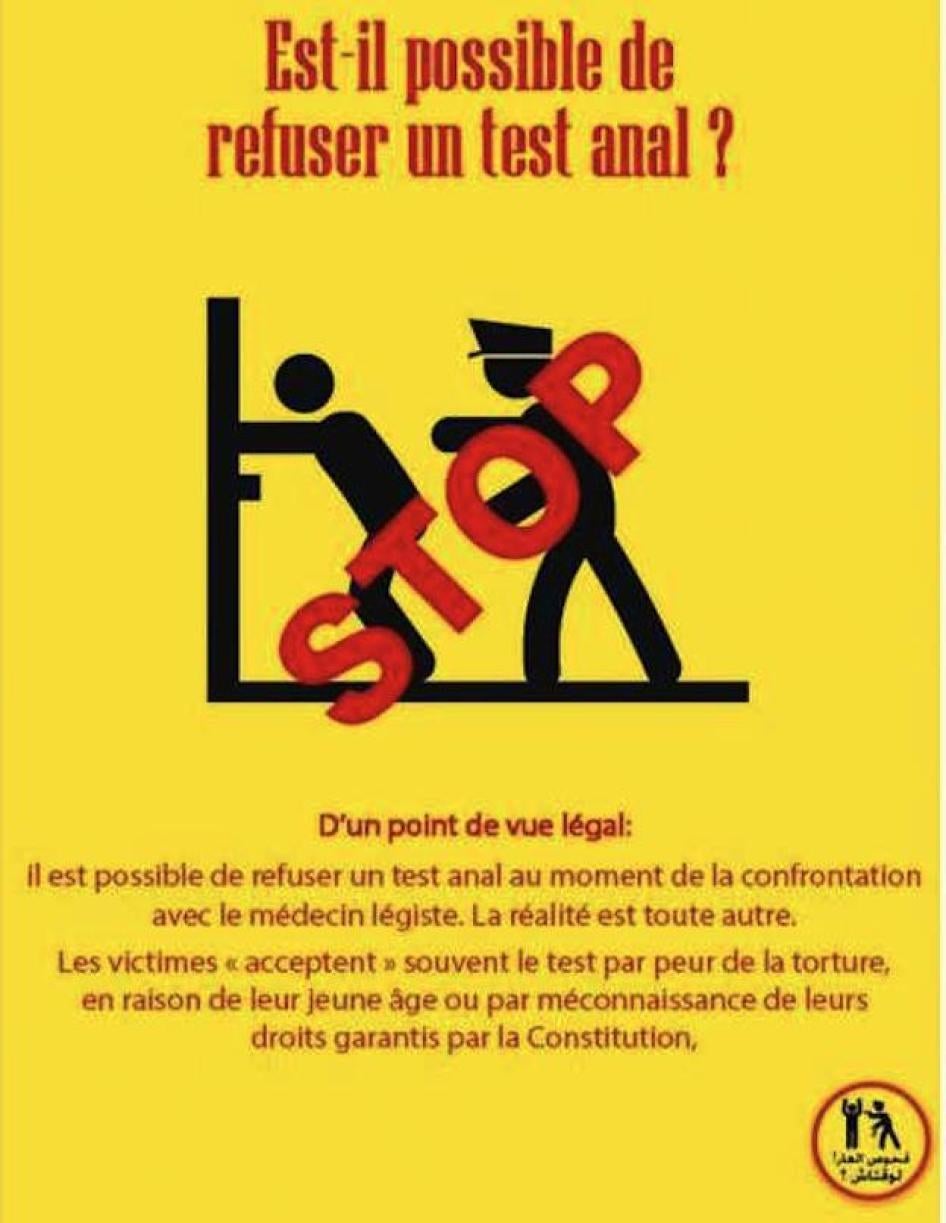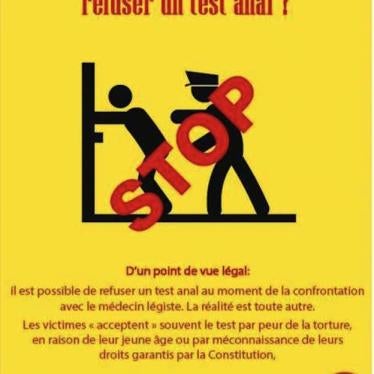At an evaluation of Tunisia’s human rights record before the United Nations Human Rights Council on May 2, the government was taken to task for criminalizing consensual sex between adults of the same sex and forcing people accused of homosexuality to undergo anal examinations.
As other states pointed out during Tunisia’s Universal Periodic Review (UPR), the country has made great strides since ousting the authoritarian president, Zine el-Abidine Ben Ali, in 2011—ratifying human rights treaties and adopting a new constitution that emphasizes rights. But its mistreatment of its lesbian, gay, bisexual and transgender (LGBT) citizens is a glaring lacuna in its progress.
Article 230 of Tunisia’s Penal Code punishes sodomy with up to three years in prison. Unlike many countries that retain but do not enforce colonial-era statutes prohibiting same-sex acts, Tunisia actively prosecutes people for consensual same-sex conduct, with at least nine men and transgender women convicted in the last two years, and others awaiting trial.
Because consensual anal sex is a victimless crime, Tunisian authorities are often at a loss to find evidence to convict people the police pick up because someone has denounced them or simply because they “look” gay.
Their solution? A discredited method used in 19th century France, which involves doctors inserting their fingers or an object into the anus of the accused, attempting to draw conclusions about whether the person has had anal sex based on the shape of the anus or the “tone” of the anal sphincter.
There is nothing scientific about this method, which has been roundly criticized by forensic experts and the World Health Organization. The United Nations Committee against Torture has called on Tunisia to end forced anal examinations, a form of cruel, inhuman and degrading treatment that can rise to the level of torture.
In response, Tunisia’s National Council of the Medical Order announced on April 3 that doctors must inform people accused of sodomy of their right to refuse the test. The government echoed the council’s statement at the UPR hearing, claiming that medical examinations in homosexuality cases are contingent on consent.
But insisting that no one should undergo a form of ill-treatment unless they “consent” is not enough. A person might consent under pressure from police, or because they believe their refusal will be held against them, or because they believe it will prove their innocence.
Last year, Human Rights Watch interviewed several victims of forced anal exams in Tunisia and elsewhere who described being beaten or threatened until they gave their “consent.” Others were told that a refusal to undergo the tests could count as evidence against them in court. One young Tunisian man, “Wassim,” arrested in Kairouan in 2015, told us:
They gave me a blank page and the doctor told me to write, “I, the undersigned, accept and hereby authorize you to conduct an anal examination on me.” The doctor told me, “If you don’t sign, I will put in your report that you had sodomy.
Often, the pressure takes place outside the medical examination room, and a doctor may have no way of knowing whether an accused person is consenting freely. “Amar,” who was also subjected to an anal exam in Kairouan, told us that a police officer slapped and punched him just outside the hospital and told him to submit the test. When the police officer took him into the examination room, Amar signed his “consent.”
Even when an accused person does consent freely, the “results” are meaningless. The Independent Forensic Experts Group identified 15 separate medical conditions that may cause decreased anal sphincter pressure, ranging from chronic constipation to Parkinson’s disease.
It’s not too hard to begin imagining possible scenarios. A heterosexual man who happens to suffer from constipation is denounced as “homosexual” by a jealous colleague. The police nab him and drag him to hospital. A doctor informs him that he can undergo a “test” that will determine whether he is gay. He consents, convinced that since he’s never had anal sex, the test will clear his name… and finds himself in prison for three years.
Tunisia’s recent insistence on consent is a step forward, but it is inadequate. During the UPR hearing, several countries recommended to Tunisia that it ban anal examinations in homosexuality prosecutions – full stop. They also called on Tunisia to decriminalize consensual sex between adults.
Tunisia should take the UPR recommendations as an opportunity to further cement its human rights progress, and should agree to ban anal exams and decriminalize homosexuality, without conditions. Otherwise, its approach to human sexuality will remain rooted in the 19th century, and its citizens will continue to be vulnerable to an atrocious affront to their dignity at the hands of the state.







